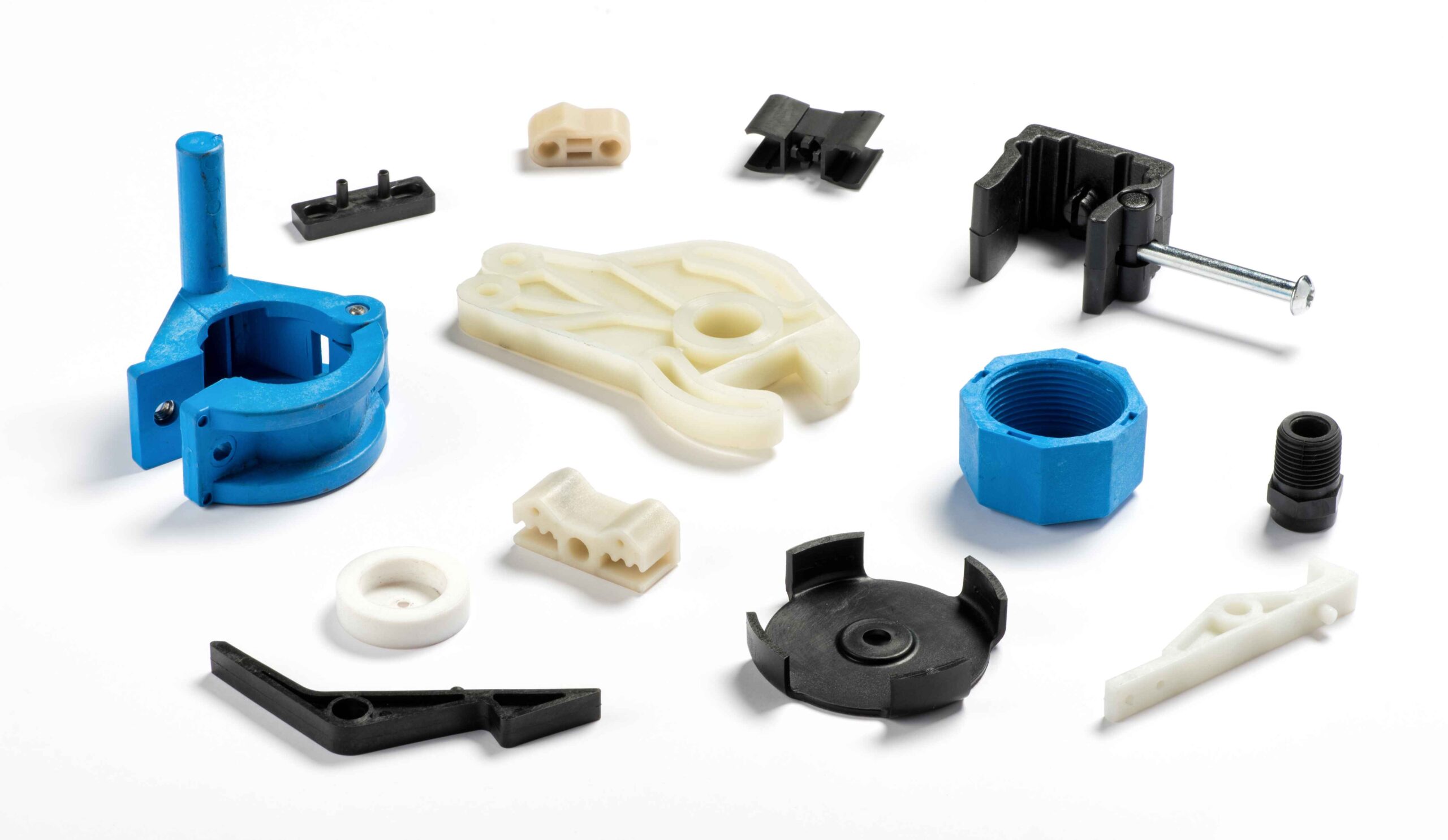In today’s manufacturing world, acetal plastic stands out as a reliable and versatile material. Known for its exceptional strength, durability, and dimensional stability, acetal has earned a reputation as a preferred choice for precision engineering and industrial applications. From automotive components to FDA-approved food processing equipment, acetal material consistently delivers performance and reliability.
Whether you’re an engineer, manufacturer, or product designer, understanding the unique properties, benefits, and applications of acetal plastic is essential for making informed material choices. In this guide, we’ll explore everything you need to know, from its defining properties and common uses to its advantages, disadvantages, and comparisons with similar materials.
What is Acetal Plastic?
Acetal plastic, scientifically known as polyoxymethylene (POM), is an engineering thermoplastic widely recognized for its strength, stiffness, and outstanding wear resistance.
Acetal is produced in two main forms: homopolymer acetal (POM-H) and copolymer acetal (POM-C). Both variations share core properties but differ in specific attributes:
- Homopolymer Acetal: Offers slightly higher mechanical strength and stiffness.
- Copolymer Acetal: Provides improved chemical resistance and reduced risk of centerline porosity.
Acetal is often used as a substitute for metal components in applications requiring precision, low friction, and excellent resistance to wear and moisture. Its ability to maintain tight tolerances makes it indispensable for critical engineering applications.
Key Characteristics of Acetal Plastic:
- Excellent tensile strength and rigidity
- Low moisture absorption
- High wear resistance
- Resistance to chemicals and fuels
- Smooth surface finish
- FDA compliance for food contact
These attributes make acetal material a versatile choice across numerous demanding environments.
Key Properties of Acetal Plastic
1. Strength and Durability
Acetal plastic is prized for its impressive tensile strength and rigidity, enabling it to withstand high mechanical stress without deformation. This makes it an excellent material for gears, bearings, and other load-bearing components.
2. Dimensional Stability
One of the standout features of acetal material is its ability to maintain dimensional stability under varying temperatures and mechanical loads. This makes it suitable for precision components that require consistent performance in dynamic environments.
3. Moisture Resistance
Unlike certain other plastics, acetal absorbs minimal moisture from the environment. This resistance ensures that its physical properties remain consistent, even in humid or wet conditions, making it ideal for marine and food processing applications.
4. Chemical Resistance
Acetal is highly resistant to many solvents, fuels, and chemicals, including alcohols, hydrocarbons, and certain acids. This property contributes to its longevity in chemically challenging applications.
5. Low Friction
The naturally low coefficient of friction in acetal plastic reduces wear and ensures smooth operation in sliding or rotating mechanisms. Components made from acetal can operate with minimal lubrication, extending their service life.
Common Applications of Acetal Plastic
Thanks to its exceptional strength, dimensional stability, and chemical resistance, acetal plastic is widely used across various industries:
- Automotive: Precision gears, fuel system components, door handles
- Food Processing: FDA-approved conveyor parts, pump components, cutting boards
- Electronics: Insulators, connectors, switch housings
- Consumer Goods: Zippers, buckles, handles
- Industrial Equipment: Bearings, rollers, bushings
This versatility makes acetal material a reliable choice for applications requiring durability, precision, and consistent performance.
Density of Acetal Plastic
The density of acetal plastic typically ranges between 1.41 and 1.43 g/cm³, depending on whether it’s a homopolymer or copolymer variant.
This density contributes to the material’s unique balance of lightweight properties and mechanical strength. It’s dense enough to offer structural reliability but light enough to reduce overall component weight, making it a preferred choice for applications requiring optimized performance-to-weight ratios.
Advantages and Disadvantages of Acetal Plastic
Advantages:
- Excellent dimensional stability across temperature variations
- High strength and stiffness
- Superior resistance to wear and abrasion
- Low moisture absorption
- Chemical resistance to fuels, alcohols, and solvents
- Smooth surface finish for reduced friction
Disadvantages:
- Poor resistance to strong acids and oxidizing agents
- Limited UV resistance (requires stabilizers for outdoor use)
- May suffer from thermal degradation if overheated during processing
Despite these limitations, acetal plastic remains one of the most versatile and dependable materials in modern manufacturing.
Is Acetal Harder than UHMW?
When comparing acetal plastic with UHMW (Ultra-High-Molecular-Weight Polyethylene), each material has its strengths:
- Dimensional Stability: Acetal offers superior stability under varying thermal and mechanical conditions.
- Stiffness: Acetal is stiffer and more rigid than UHMW, making it better for precision applications.
- Wear Resistance: UHMW excels in applications requiring extreme wear resistance and impact absorption.
While UHMW is ideal for heavy-duty wear applications, acetal material is the preferred choice for high-precision components requiring tight tolerances.
Why Choose Acetal Plastic for Your Next Project?
Acetal plastic offers a powerful combination of strength, stability, and reliability. Whether you’re designing gears for an automobile, FDA-compliant components for food processing, or durable parts for consumer goods, acetal material ensures consistent performance and long-term durability.
By choosing acetal plastic, you gain:
- Precision engineering capability
- Long-lasting durability
- Reduced maintenance costs
- Consistent performance in varying environments
For high-quality acetal plastic solutions, partner with a trusted supplier like Millennium Specialty Alloys. With a commitment to quality and customer satisfaction, they provide premium-grade acetal materials tailored to your project needs.
From its mechanical strength and chemical resistance to its dimensional stability and versatility, acetal plastic remains a go-to material across industries. Whether in automotive, food processing, or consumer applications, its properties make it a reliable choice for precision and performance.
